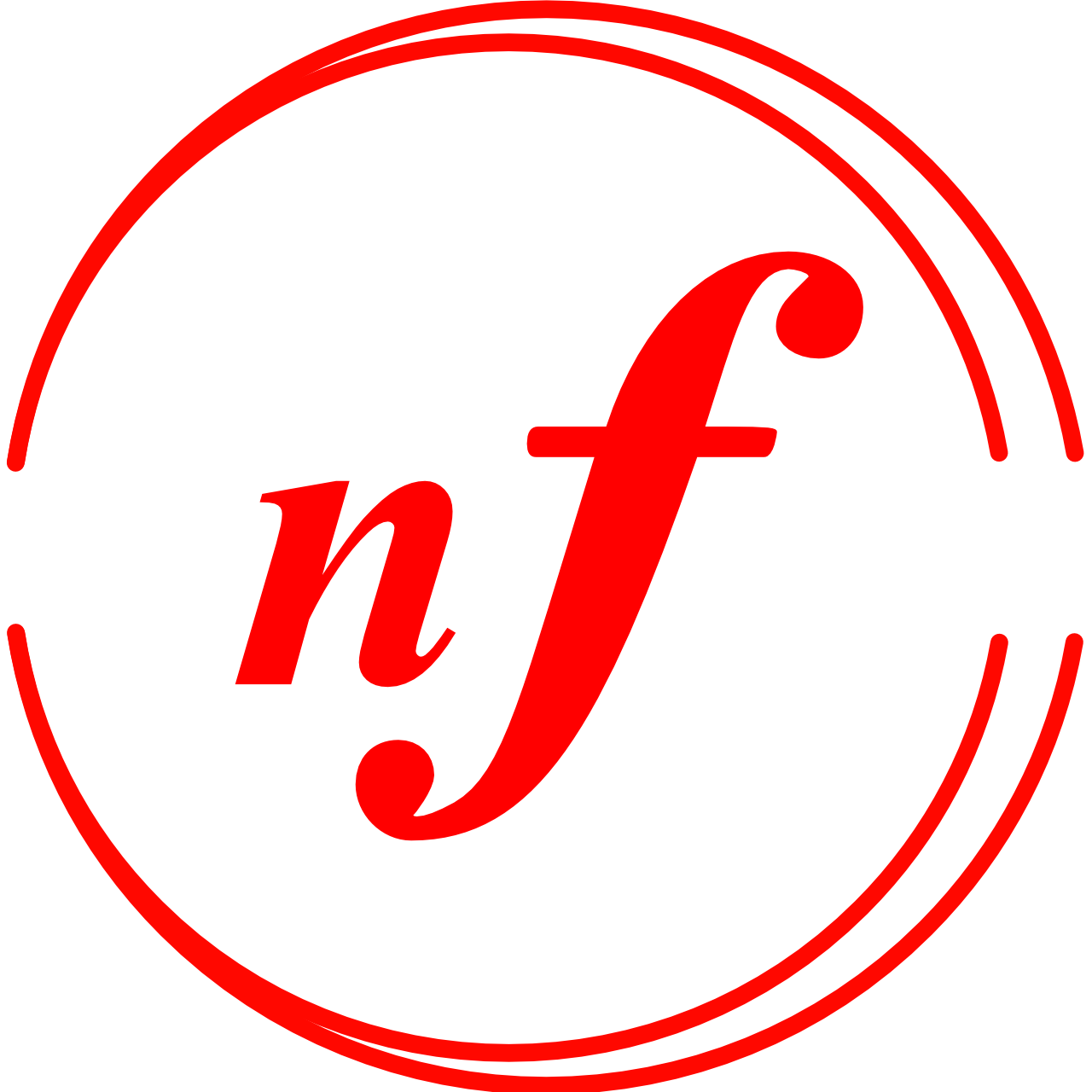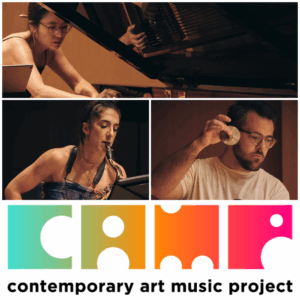Contemporary Art Music Project
Friday Oct 10th, 2025
7:30pm
Dixon Annex Recital Hall, Tulane University
(tap/click dropdowns to expand program notes)
Smart-alienation (2016) - Igor C Silva Born in Porto and currently based in Amsterdam, Igor C Silva is a composer devoted to electronics and new media music, creating projects where performers, computers and many noisy and psychedelic things happen on stage, creating a multi-sensorial experience. Igor collaborates regularly with soloists, ensembles, and jazz groups, devoting part of his musical and composing activity to improvisation and interactive performances with electronics and multimedia tools. Igor was the Resident Young Composer at Casa da Música in 2012, the Composer in Residence at Miso Music Studios in 2015, and in the 2018/19 season, he was the resident composer of Drumming GP. Igor C Silva won several prizes, including the 1st Prize at the 1st International Electroacoustic and Intermedial Composition Competition “eviMus” (Germany) with the piece “Numb”, the 1st Prize at the “Concurso Internacional de Composição GMCL/Jorge Peixinho” (Portugal) with Blood Ink, among others. Igor C Silva graduated in composition at Escola Superior de Música, Artes e Espetáculo (ESMAE) in 2011, and earned his Master’s degree in Composition and Music Theory in 2013. In 2017, Igor received his Master’s degree in live-electronics at Conservatorium van Amsterdam. Currently, he is a PhD candidate at VUB (Brussels) and Koninklijk Conservatorium Brussel, where he teaches a live electronics course. Igor C Silva is a co founder of Trash Panda Collective. Little Suite (2025) – Daniel Pesca Program Notes Composed for Eunmi Ko, my Little Suite for solo piano is a conversation with the Baroque keyboard collections by Bach, Rameau and Couperin. What does it mean to write in these time-honored forms in 2025; how does my musical language fit into, or stretch, their boundaries? After a spirited, perpetual-motion Prelude, the Corrente playfully alternates between fleet passagework, mini-explosions, and suspended resonances. Shadows get longer and deeper in the Sarabande, which unfolds as though scored for antiphonal choirs. It ends with a hushed, mysterious coda. I composed the Gigue en Rondeau while watching a beautiful snowfall; the movement’s flickering, delicate ornamentation echoes the sunlight playing across the snowflakes. Daniel Pesca has been called “the perfect composer-virtuoso pianist” (All about the Arts). Noted for their poetry and lyricism, his works have been commissioned by the National Endowment for the Arts, the Howard Hanson Institute, and New Music USA. He has composed for the American Wild Ensemble, Constellation Chamber Concerts, the Chicago Center for Contemporary Composition, the Oberlin Contemporary Ensemble, and Sound Impact. An album of his music, Walk with me, my joy, appeared on New Focus Recordings this June. As pianist, Daniel has taken part in the premiere of about 200 works. He is a member of the Grossman Ensemble and the Zohn Collective, and he appears on 20 commercial recordings (including a solo album, Promontory). He has performed as concerto soloist in his own Up North, as well as works by Messiaen, Bernstein, Stravinsky, and others. He is on the composition faculty at the Eastman School of Music. fuse (2019) - Patrick Chin Ting Chan Commissioned by and written for Popebama (Erin Rogers, saxophone; Dennis Sullivan, percussion), fuse is a controlled aleatory composition that explores the idea of fusing different timbral materials into one entity. The performers are given non-pitched, notational but sometimes graphical rhythmic guidance in a timed improvisation. They are also given the freedom to choose the specific saxophone and percussion instruments, while amplification or live electronics can be added as an augmentation as well. Each performing duo will eventually find their own way to “fuse” the materials. Composer Patrick Chin Ting CHAN grew up in Hong Kong and came to the United States in 2003. He has been featured in events including Ars Electronica, IRCAM’s ManiFeste, ISCM World Music Days, UNESCO International Rostrum of Composers, and Venice Art Biennale, among others. He has worked with ensembles such as City Chamber Orchestra of Hong Kong, Ensemble intercontemporain (France), Ensemble Metamorphosis (Serbia), eighth blackbird (U.S.), Hong Kong New Music Ensemble, Mivos Quartet (U.S.), and New York New Music Ensemble, with performances in more than thirty countries. His scores are published through BabelScores and Universal Edition. He is also an active performer and improviser of accordion, guqin, as well as live electronics using a Eurorack modular system and other custom interfaces on the computer. He is currently an Associate Professor of Music Composition at Ball State University. REDLINE (2019) - Kyle Grimm REDLINE, for alto saxophone and live electronics, blends the styles of contemporary classical, bebop jazz, noise, and modern pop production into a high-energy exploration of melody and polyphony. Inspired by the virtuosity of Joshua Redman, and employing electronic techniques such as granular synthesis and auto-tune, REDLINE was written to appease the many different interests and obsessions of the composer.accompany us from our childhood to the end. As getting dry jasmine flowers loose its petals as time shrinking out day-by-day… minute-by-minute… Kyle Grimm is a composer and double bassist whose music has been described as “feisty technicolor” (Roger Zahab). His compositions strive to strike a balance between the gritty and the beautiful through juxtaposition, layering, and synthesis; often employing electronics alongside acoustic elements. His compositions have been featured in festivals such as SEAMUS, CAMPground, EMM, and NASA; and has worked with ensembles such as Kamratōn, Eugene Difficult Music Ensemble, and Ensemble 4Saxess. An active double bassist, Kyle recently performed a recital of works for double bass and electronics, which included original compositions alongside commissioned works by Maria Kaoutzani, Aaron Wyanski, and Ken Steen. Kyle is currently an Assistant Professor of Music Composition at The Hartt School, University of Hartford. Never Meet Your Heroes - Sean Hamilton Never Meet Your Heroes is a composition for soloist or ensemble of any size that explores my interests in the intersections of improvisation, composition, and graphic and alternative notations. The score uses no traditional musical notation but instead is comprised of a variety of lines, images, pictograms, shapes, and text that make up “paths” and “areas” which guide the performer in their interpretation of the work. There is no prescribed duration or instrumentation for the work. Sean Hamilton is a percussionist, composer, improviser, and audio engineer whose creative practice focuses on juxtapositions, moments, and sonic opportunities, largely in two areas: hybrids of the improvised and the composed, and the fusing of analog and digital mediums and processes. His interests are rooted in avant-garde and experimental music, free improvisation, electronic and electroacoustic music, noise, photography and graphic design, punk, metal, and sound art. He holds a Master of Music degree in Percussion Performance and Music Composition from the University of South Florida and a Bachelor’s degree from Slippery Rock University. The Force for Good (2020) - Michael Fiday “I know that there are bad forces, forces that bring suffering to others and misery to the world, but I want to be the opposite force. I want to be the force which is truly for good.” John Coltrane The Force for Good is a set of variations for quartet of saxophone, percussion, electric guitar and piano, based on the well-known chord progression from John Coltrane’s Giant Steps. The work begins with the ensemble playing a series of expanding rhythmic patterns as a sort of “drum circle,” out of which a modified version of Coltrane’s progression gradually takes root. The succeeding variations that form the core of the work are organized into sets of variations, each beginning with a given member of the ensemble featured as soloist, followed by subsequent variations featuring the ensemble in duo, trio or tutti configurations. The Force for Good was composed during a volatile time, begun in summer of 2019 and completed one year later in the midst of authoritarian impulse, a global pandemic, and a surge of protests associated with police brutality and systemic racism. Though not initially conceived as a political work, the events of spring and summer 2020 began to seep into the latter half of the work in ways both general and specific, most explicitly in the “piano solo” variation toward the center of the piece, which features the name of George Floyd, murdered by the Minneapolis police in May of that year, referenced by two sharp, aggressive chords that repeatedly disturb the music’s otherwise stable surface. The title was added after the work’s completion at year’s end as a gesture of hope, signifying The Force for Good both as a celebration of the music of John Coltrane and as an expression of his conviction that the creative act constitutes the most powerful defense against destruction. The Force for Good was composed for the ensemble Hypercube, with generous support from the Barlow Foundation. Michael Fiday’s music has been commissioned and performed extensively throughout the United States, Europe and elsewhere by a diverse range of performers such as Cincinnati Symphony, Atlanta Symphony, American Composers Orchestra, Oakland East Bay Symphony, Percussion Ensemble of The Hague, pianists James Tocco and Marc-Andre Hamelin, and electric guitarist Seth Josel. His principal teachers in composition have included Richard Toensing at University of Colorado, George Crumb at University of Pennsylvania, and Louis Andriessen, with whom he studied in Amsterdam under the auspices of a Fulbright Grant. Mr. Fiday is the recipient of numerous awards, grants and residencies from, among others, the American Academy of Arts and Letters, the Fromm Foundation, Barlow Foundation, American Composers Forum, BMI, ASCAP, Virginia Center for the Creative Arts, The MacDowell Colony, Yaddo, Headlands Center for the Arts, and the Ohio Arts Council. He is currently Professor of Composition at the College-Conservatory of Music at University of Cincinnati. Ensemble Bio CAMP Ensemble is a collective of performers from the Tampa-based new music organization, Contemporary Art Music Project (CAMP). Known for its innovative collaborations and diverse programming, CAMP Ensemble has served as the ensemble-in-residence at the Iceberg New Music Summer Institute, Project 1.5 & 34.7 (Seoul, Korea), the University of Cincinnati College-Conservatory of Music, CAMP’s international new music festival, CAMPGround, among others. Katherine Weintraub (sax), Zach Hale (guitar), Kevin von Kampen (percussion), Eunmi Ko (piano) nF Acknowledgements The nienteForte Residency Series is a program of Versipel New Music. We would like to give acknowledge the following people and organizations who have offered their time and resources to make this season possible:
I. Prelude
II. Corrente
III. Sarabande
IV. Gigue en rondeau

